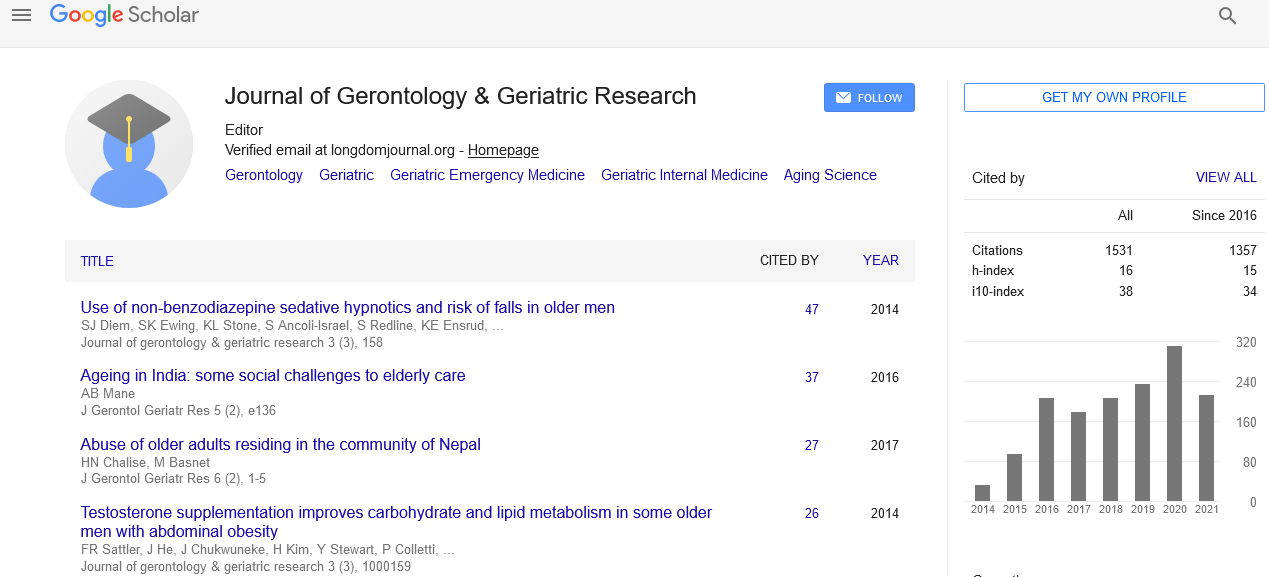PMC/PubMed Indexed Articles
Indexed In
- Open J Gate
- Genamics JournalSeek
- SafetyLit
- RefSeek
- Hamdard University
- EBSCO A-Z
- OCLC- WorldCat
- Publons
- Geneva Foundation for Medical Education and Research
- Euro Pub
- Google Scholar
Useful Links
Share This Page
Journal Flyer

Open Access Journals
- Agri and Aquaculture
- Biochemistry
- Bioinformatics & Systems Biology
- Business & Management
- Chemistry
- Clinical Sciences
- Engineering
- Food & Nutrition
- General Science
- Genetics & Molecular Biology
- Immunology & Microbiology
- Medical Sciences
- Neuroscience & Psychology
- Nursing & Health Care
- Pharmaceutical Sciences
Population changes matter
International Conference on Geriatrics & Gerontology
July 08-10, 2014 DoubleTree by Hilton Hotel Chicago-North Shore Conference Center, USA
Greg Shaw
Accepted Abstracts: J Gerontol Geriat Res
Abstract:
In the Aboriginal milieu the word ?Elder? is used to describe cultural and spiritual guides who ?have gifts of insight and understanding, as well as communication skills to pass on the collective wisdom of generations that have gone before. Historically and in many traditional societies older people have enjoyed a privileged position based on respect, consideration, status ad authority. Yet today the ?noise? about how to best formally protect the rights of older people suggests that these fundamental human values and power of intrinsic human capacity may be subsumed under the speed of life, living and technological advancements. A new era is being borne ? an era where the consequences of demography will go beyond age related policies which respond to the goal of a healthy active ageing community and also speak to quality of health and social care models for older people with chronic debilitating conditions. Scientists are now considering the influence of certain demographic upheavals, namely population ageing and urbanization on emissions and climate change. The United Nations estimates that the world?s population is on track to surpass 9 billion persons by 2050. The place where the action is, is the older population. The decisions that over two billion people 60 year of age and over (22% of the world?s population) make now in terms of living arrangements, housing, employment and reproduction will significantly impact the lives of future generations and the life of our planet. Population size is linked to ageing, urbanization, and emissions.
Biography :
Greg Shaw has a science and health administration background and until taking up the position of Director, International and Corporate Relations in June 2003, held senior management positions within the Australian Commonwealth Department Health and Ageing in Australia. Prior to joining the IFA he was the Manager for residential aged and community aged care programs in Western Australia. His long career with the Australian Government included management of the Compliance, Complaint and Accountability Section of the Department, having responsibility for the regulatory regime associated with quality of care and certification programs in both residential and community care services. His earlier work focused on policy development and program implementation supporting the aged care needs of rural and remote communities throughout northern Australia.


